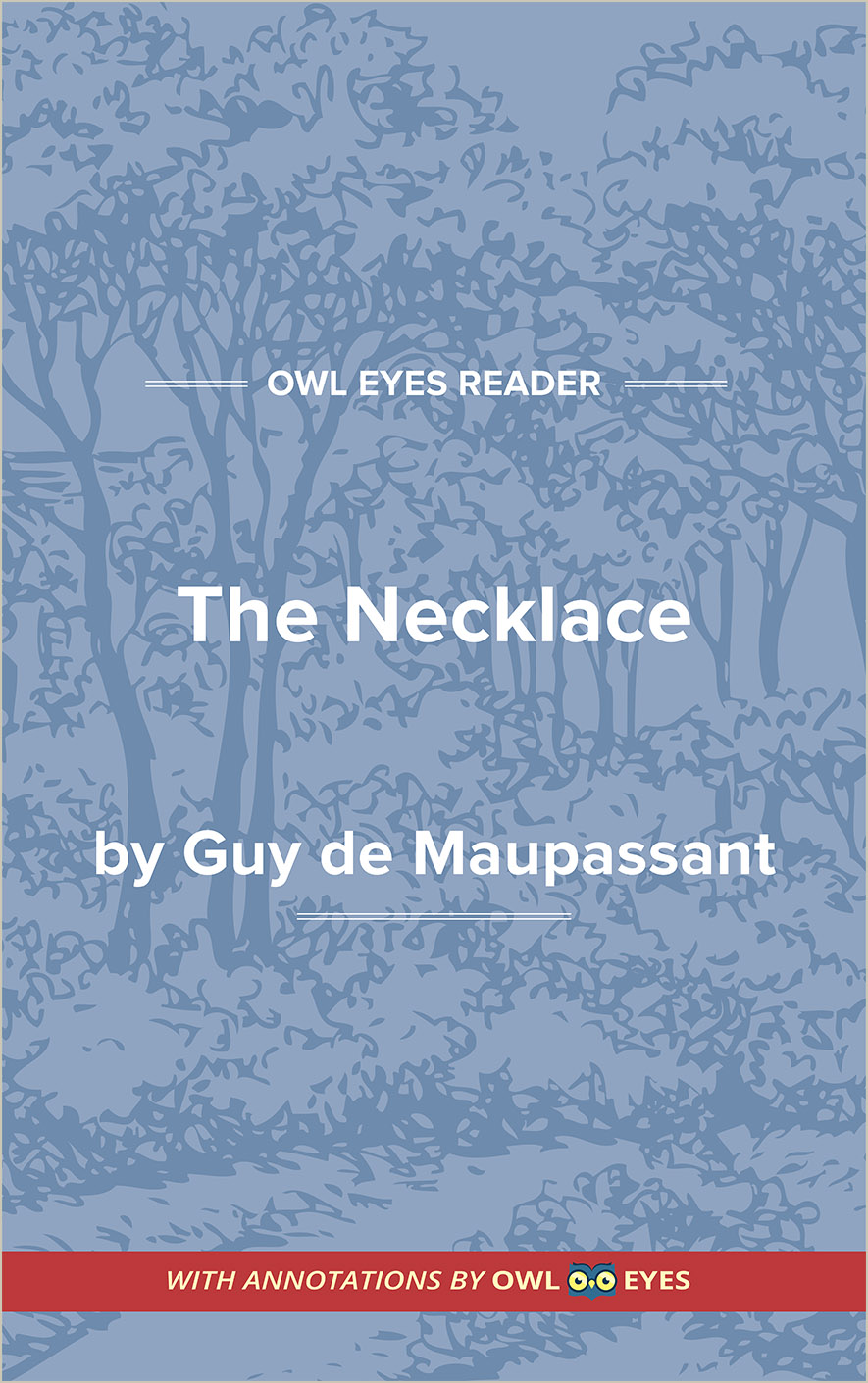Analysis Pages
Themes in The Necklace
Wealth: Wealth and greed go hand-in-hand in de Maupassant’s story. Mathilde longs for a life of wealth and glamor, which she deems far superior to her current life as a clerk’s wife. In her quest to appear wealthier than she is, she borrows a diamond necklace from wealthy friend Madame Forestier. Mathilde loses the necklace and then puts her husband and herself into ten years of abject poverty in order to afford a replacement. The story demonstrates the negative forces of greed and pride, both of which lead Mathilde down a path of suffering and affliction.
Appearances vs Reality: The narrative’s central theme is the falsity of appearances. When invited to a ball, Mathilde spends an excessive amount of money on a dress and borrows a diamond necklace from a friend in order to appear richer than she is. When the ball is over, Mathilde makes sure to leave hastily to hide her shabby coat so that the other guests do not notice her poor appearance. The ultimate irony is the deceptiveness of the necklace itself, which eventually teaches Mathilde a lesson about her own greed and vanity.
Themes Examples in The Necklace:
The Necklace
🔒"chagrin..." See in text (The Necklace)
"Will you lend me this, only this?..." See in text (The Necklace)
"feeling herself born to enjoy all delicacies and all luxuries...." See in text (The Necklace)
"You must write to your friend..." See in text (The Necklace)

